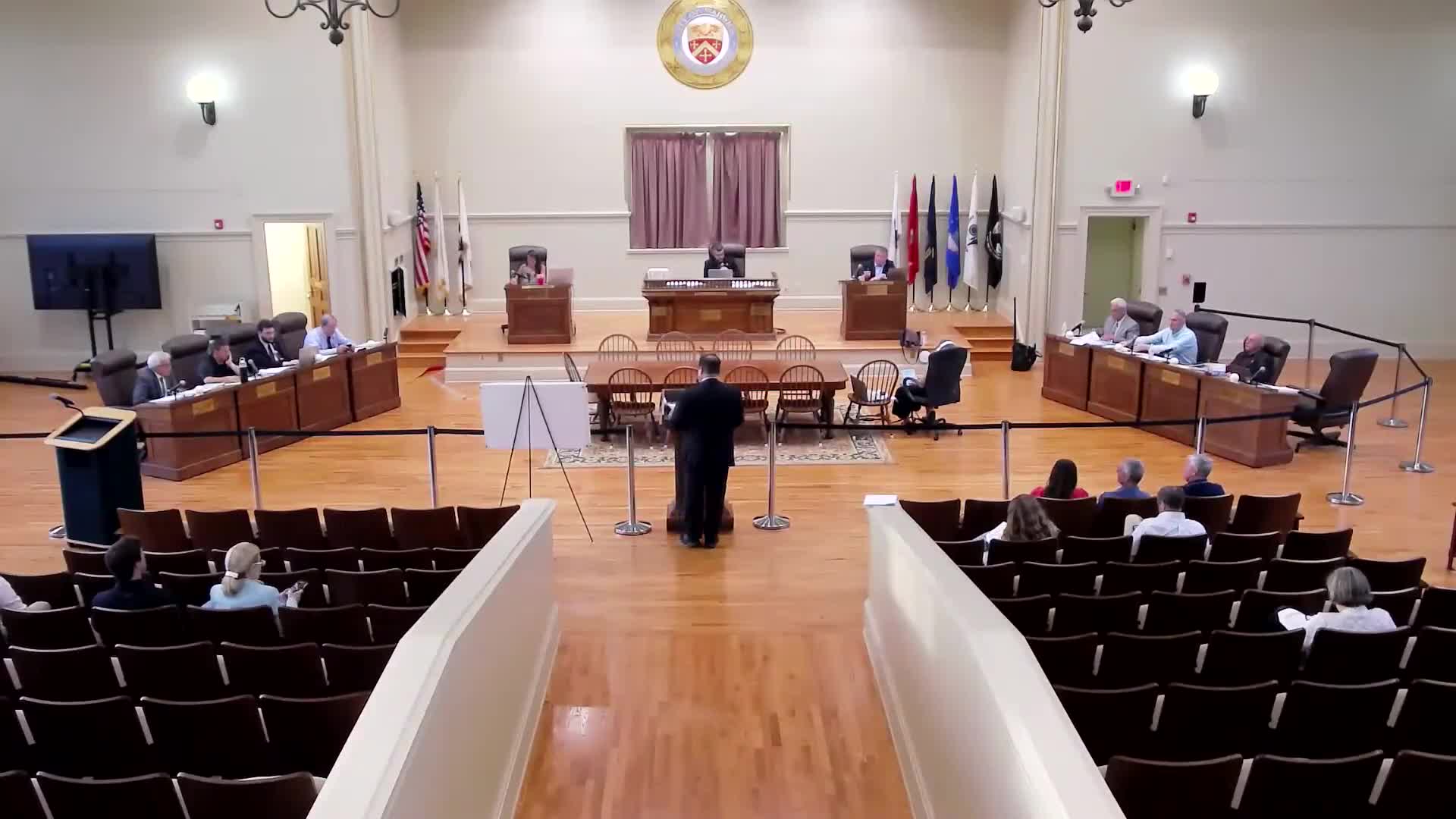Article not found
This article is no longer available. But don't worry—we've gathered other articles that discuss the same topic.
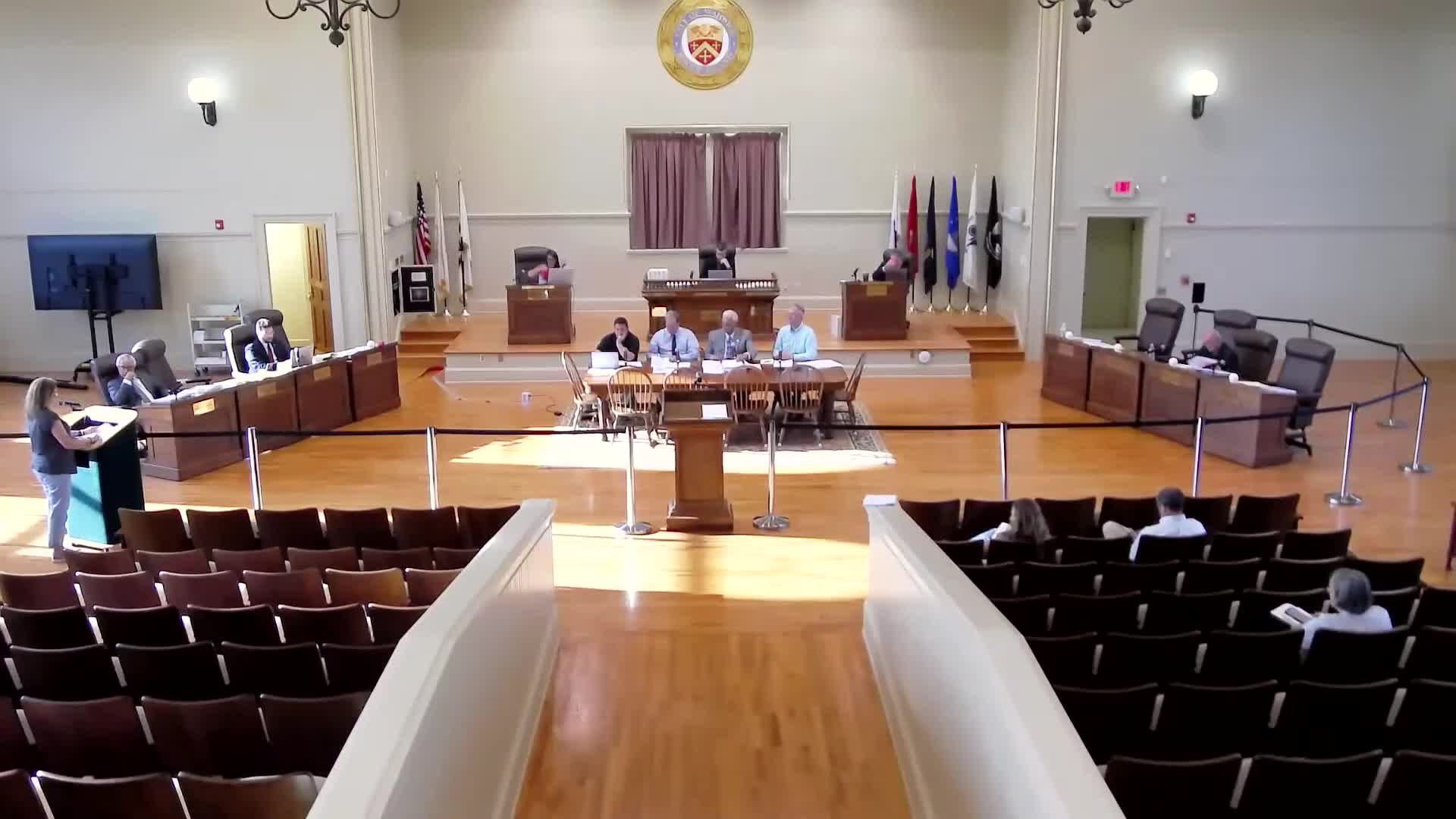
Council approves $198,000 bid to address recurring flooding on Gilbert Street
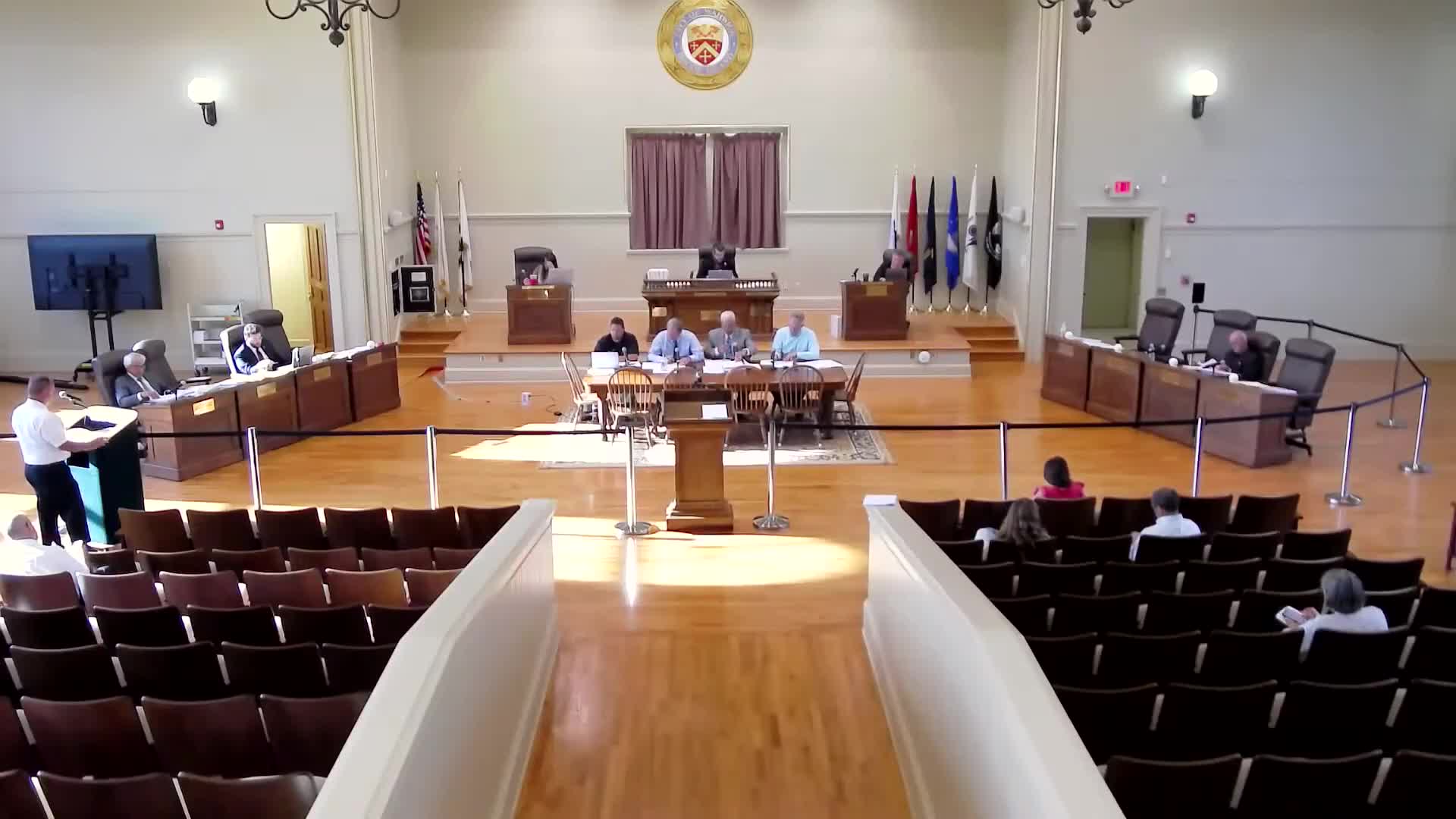
Council approves paramedic training for 22 firefighters using FEMA AFG funds
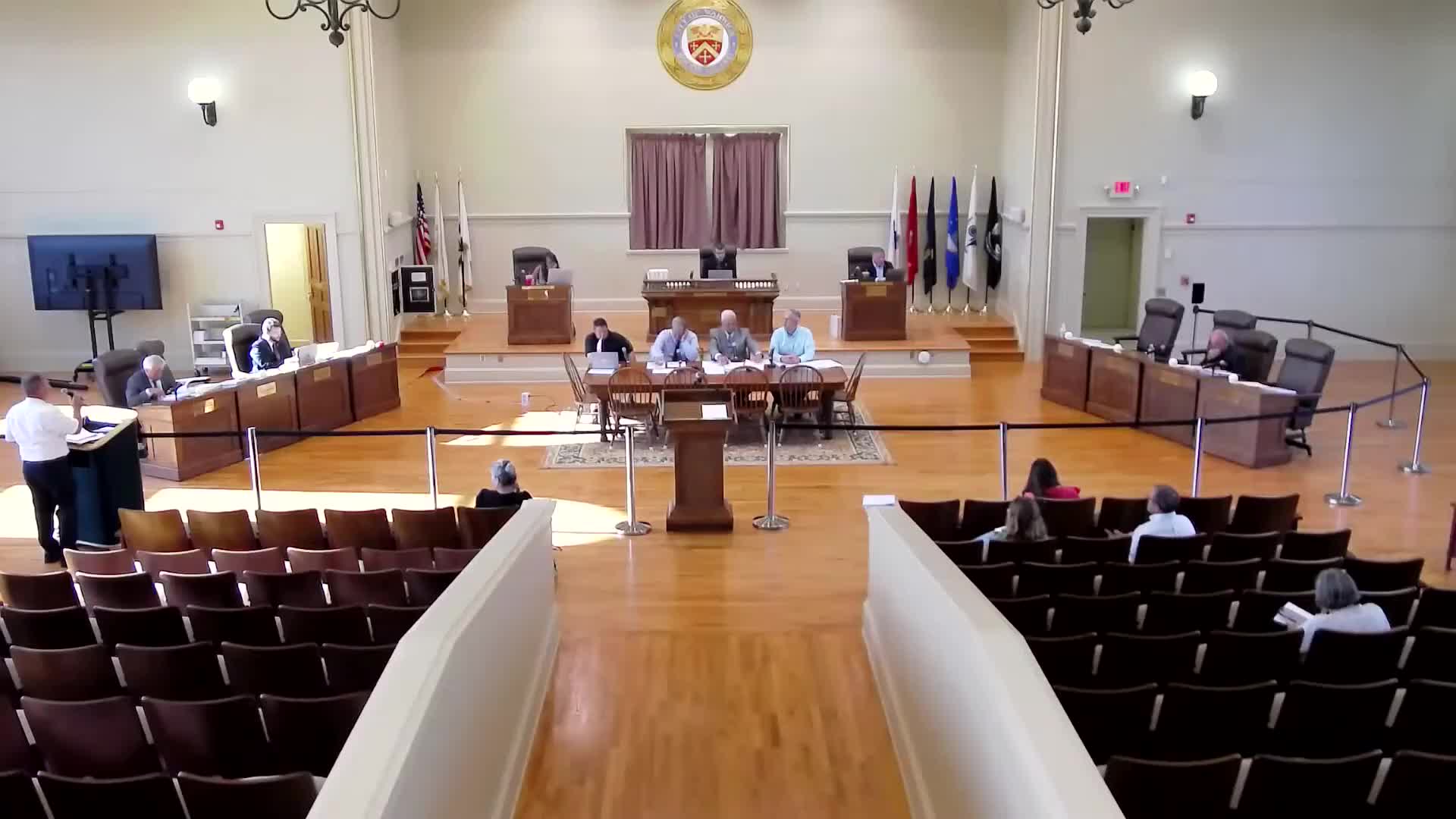
Council approves purchase of new pumper and ambulance; chiefs emphasize warranties and delivery delays
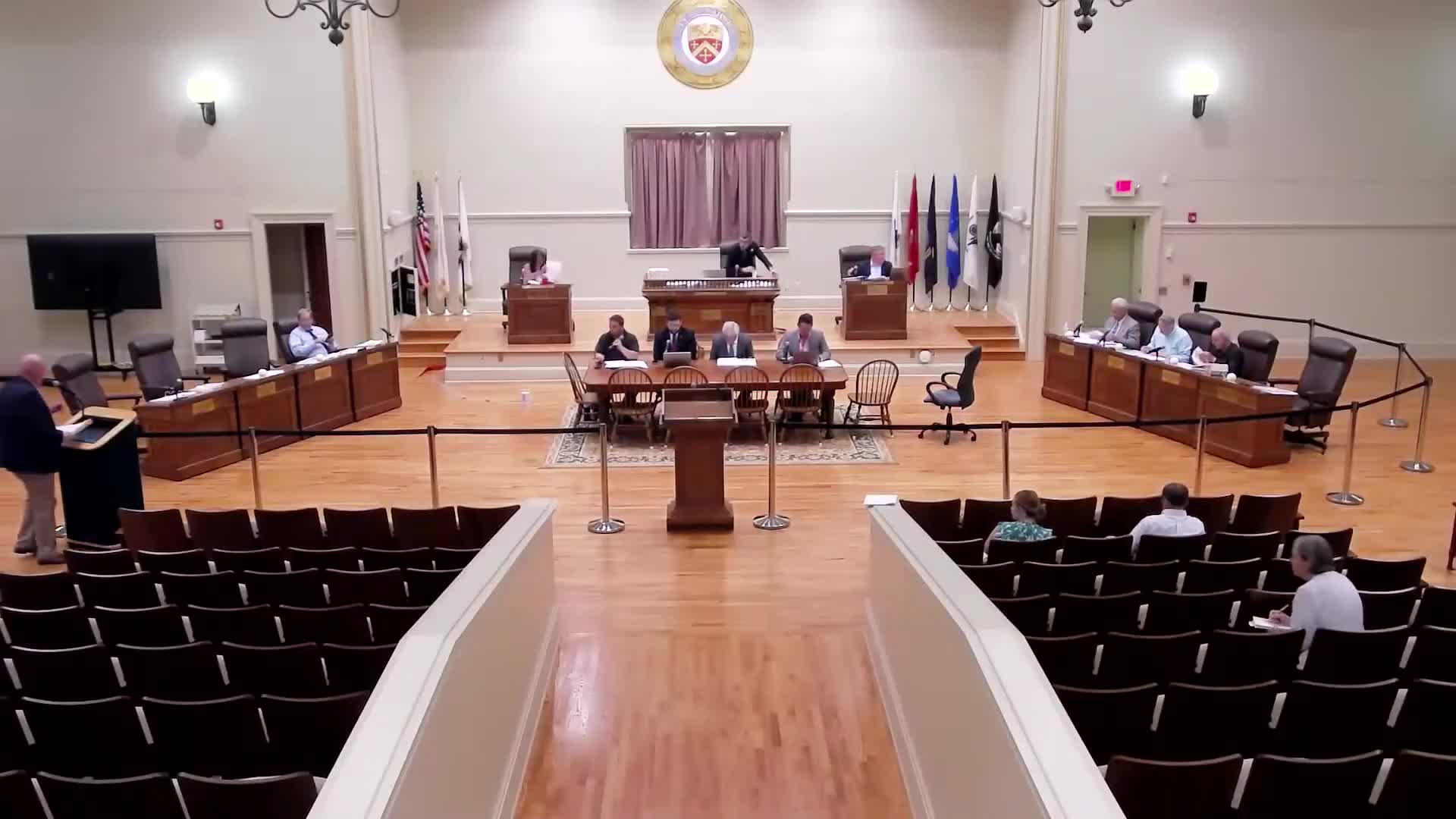
Council holds overhaul of tax-title ordinance after public concerns, asks for more analysis
